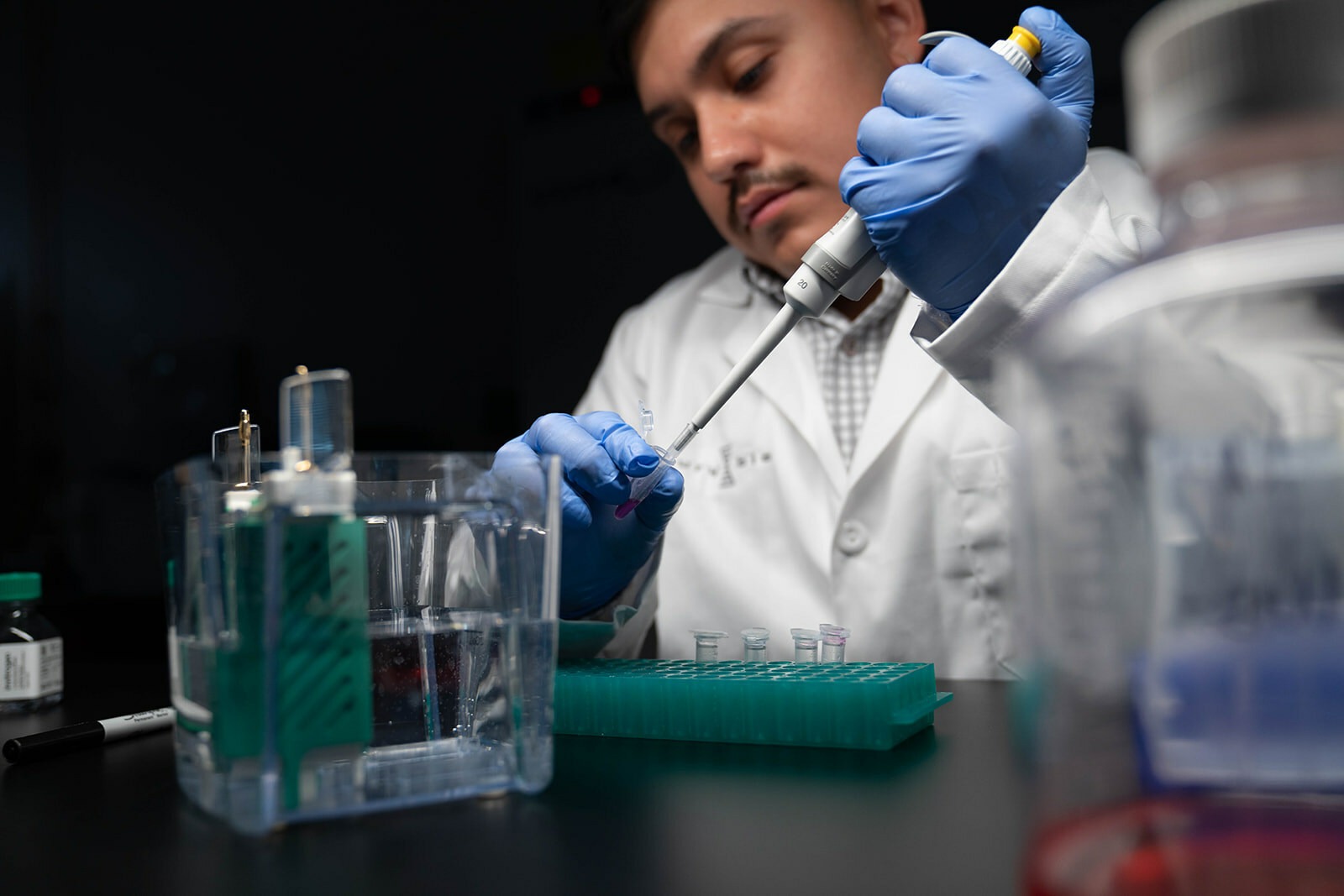Mercury Bio will leverage its yEV technology, and Himed will provide an organic calcium phosphate (CaP)-based scaffold, which allows allogeneic particles to elute into the surrounding tissue to promote bone healing and growth

A lab scientist conducting cellular trials at Mercury Bio's facility. (Credit: Mercury Bio Inc.)
US-based biotechnology company Mercury Bio has teamed up with Himed, a New York-based producer of bioceramics and biocompatible surface treatments for medical and dental implants.
The two companies have agreed jointly research, develop, and license an osteogenic material for use in bone cements, coatings for implantable devices, and other applications.
Mercury Bio will leverage its yEV technology that harnesses natural extracellular vesicles (EVs) to carry specific RNAs and small-molecule drugs, such as the protein BMP-9, to targeted cells.
Himed will provide an organic calcium phosphate (CaP)-based scaffold, which allows allogeneic particles to elute into the surrounding tissue to promote bone healing and growth.
Himed CEO Dana Barnard said: “These are exciting times, this agreement marks Himed’s debut into organic materials, building on our long history of supplying top-level bioceramic materials and services to device manufacturers.
“Mercury Bio’s technology is completely innovative, we think this collaboration has great potential and could chart new directions in bone repair.”
According to Mercury Bio, calcium phosphates, particularly hydroxyapatite (HA) and tricalcium phosphate (TCP), are natural minerals that compose about 70% of bone.
Historically, calcium phosphates have been used in bone repair, and their use in implantable devices and bone putties has grown rapidly over the last few decades.
Mercury Bio said that the combination of its own technologies with that of Himed’s will provide dramatic benefits for device implants and other bone surgeries.
Earlier this week, Himed announced a partnership with medical 3D printer manufacturer Lithoz.
The company is now looking to strategic collaborations to design new approaches to healing using calcium phosphates.
Mercury Bio CEO Bruce McCormick said: “Loading yEVs with BMP-9 and infusing them into bioactive coatings will provide a highly targeted, controlled release of bone morphogenic protein, which may dramatically speed up healing and reduce the risks of complications from long recoveries after surgery.
“We’re excited to work with a world leader in calcium phosphates to bring the potential of advanced yEV drug delivery to the orthopaedic field.”
